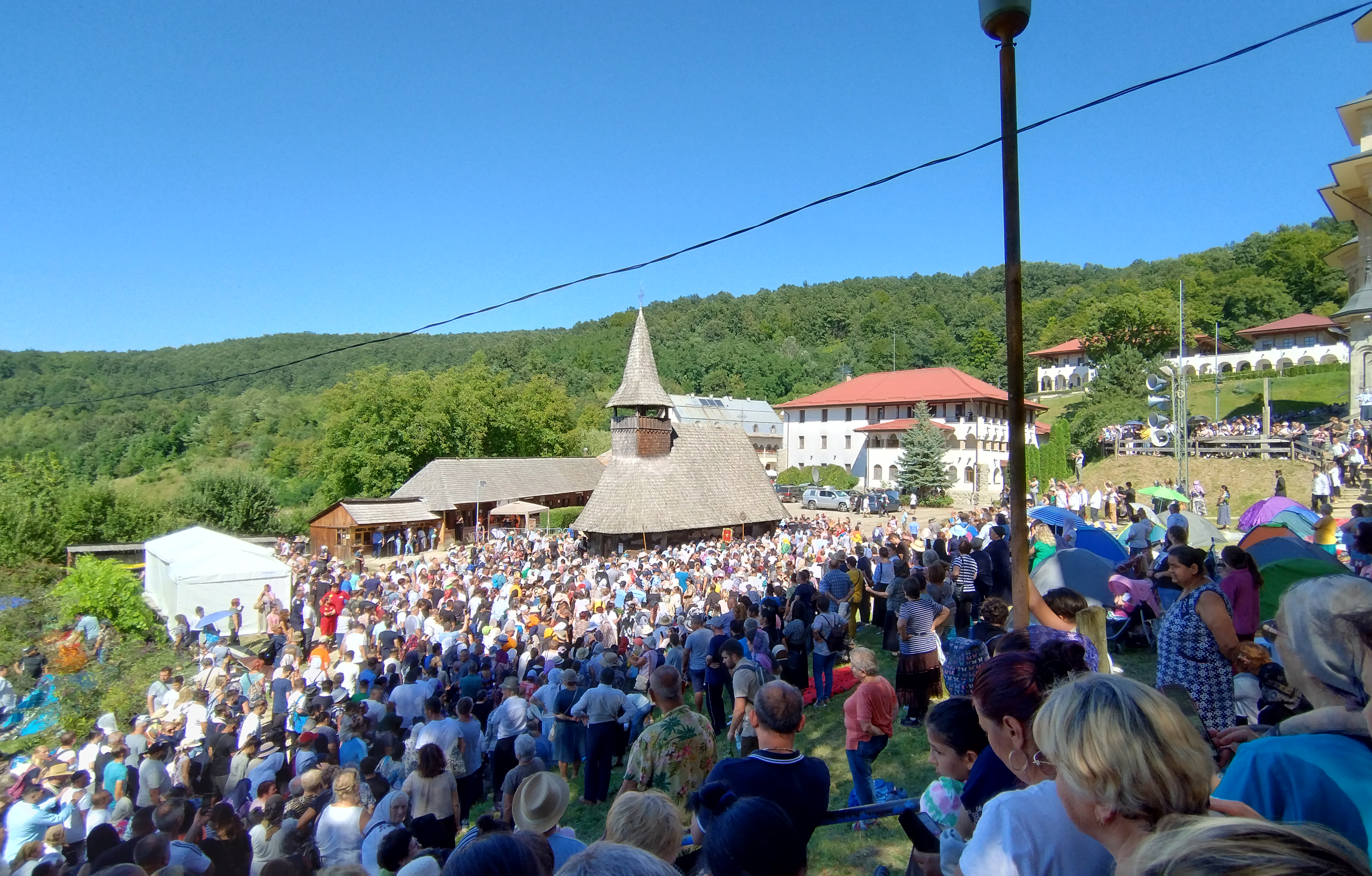Fieldwork in Prislop, Nicula and Dervent monasteries in Romania (August, 2023)
In August 2023, Giuseppe Tateo visited the monasteries of Nicula, Prislop and Dervent, all currently managed by the Romanian Orthodox Church. His fieldwork combined the methods typical of ethnographic research (participant observation and semi-structured interviews) to investigate the spatial strategies enacted by the Orthodox Church to reclaim legitimate ownership and exclusive primacy over these popular devotional sites with a composite ethnic and religious past.
Contrary to the abundance of shared religious places throughout south-eastern Europe, multi-religious interaction is not a regular feature in Romania. Pilgrimages and visits to the popular Orthodox monasteries of Prislop and Nicula in Transylvania, and Dervent in Dobruja are an exception to this trend. Unsurprisingly, these two regions are historically the most heterogeneous in terms of ethnic and religious diversity. The two Transylvanian monasteries attract practitioners of different Christian denominations (Orthodox, Greek-Catholic, Roman-Catholic, and Evangelical), while Dervent is a devotional site for Christians and Muslims (Tatars, Turks, and Roma) alike. Common to all three monasteries is the presence of allegedly miracle-working objects, artefacts, and bodies: a stone cross at Dervent, the Virgin Mary icon at Nicula, and the tomb of the charismatic monk Arsenie Boca at Prislop, respectively.

This research was supported by the project “Euro-Mediterranean Integration: enhancement and analysis of cultural and religious heritage as a factor of inclusion, sustainability and mobility.”: DM 737/2021 - CUP F85F21004480001, coordinated by Gennaro Gervasio and Maria Chiara Giorda, Roma Tre University.
Download here
